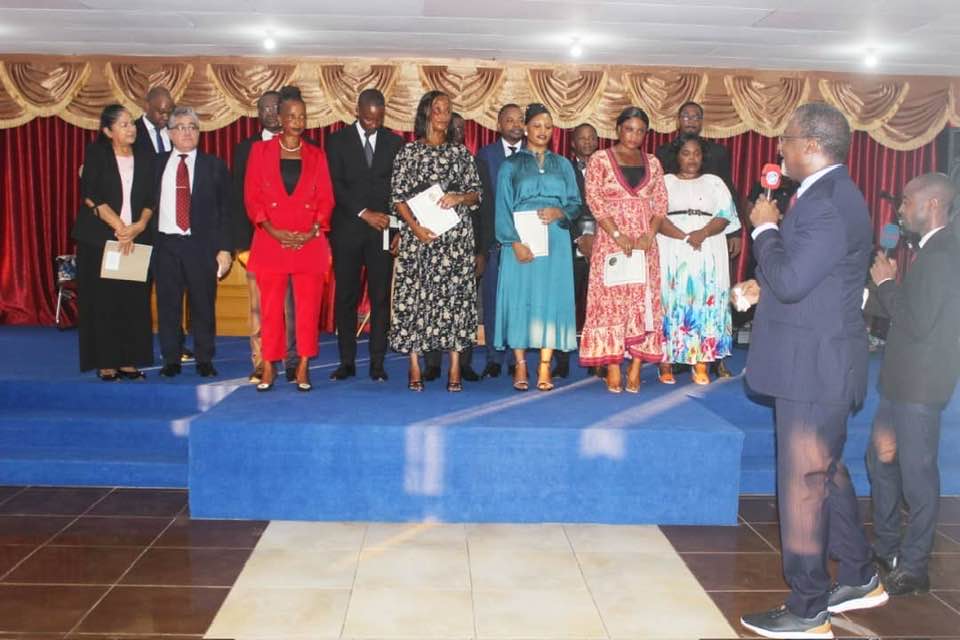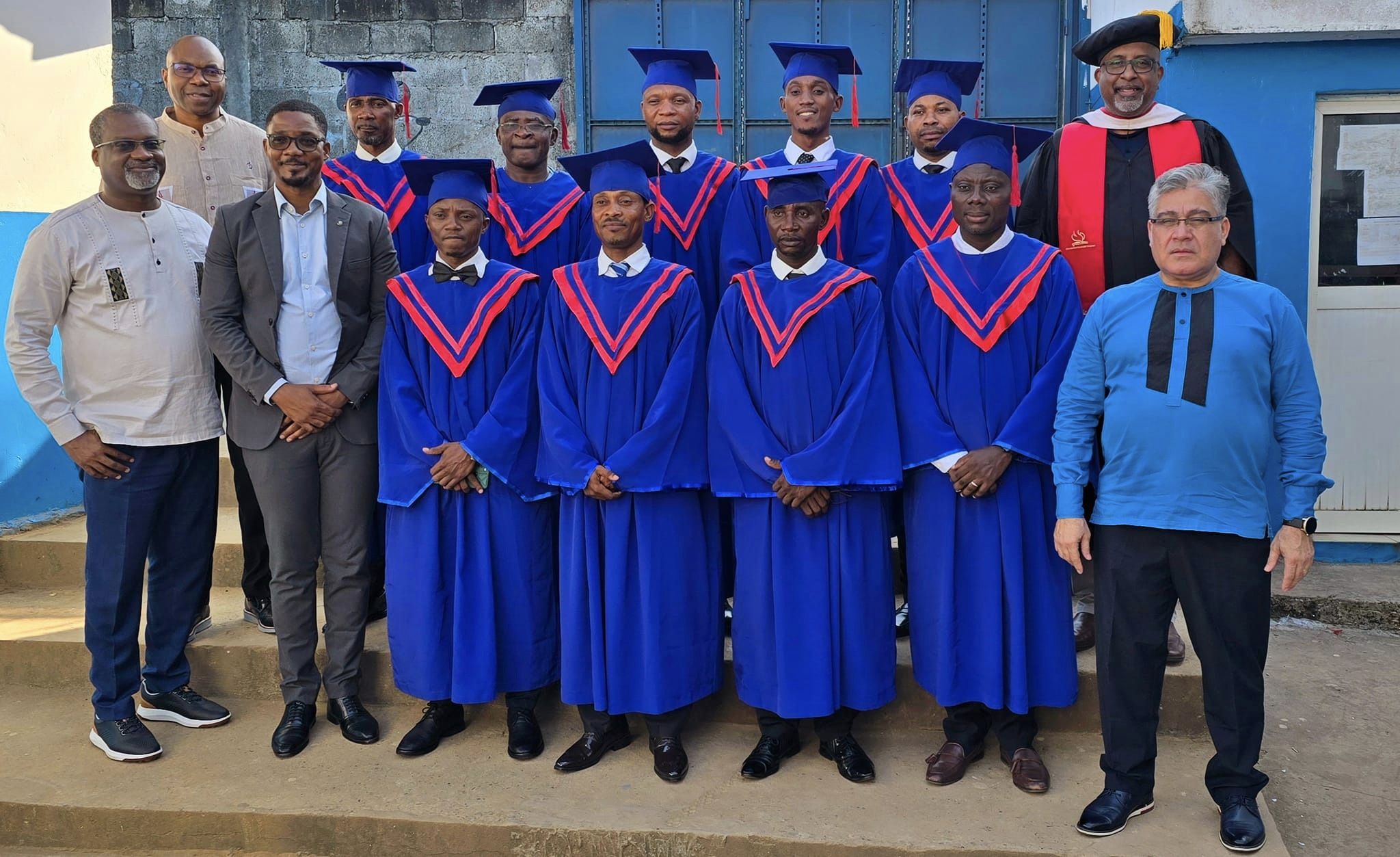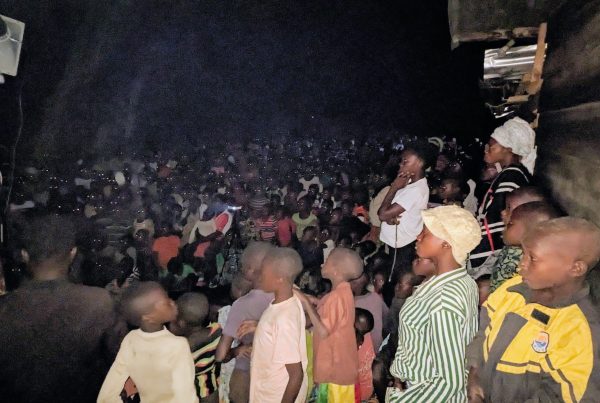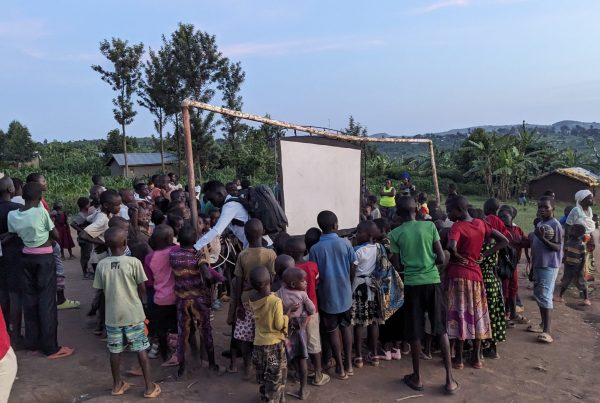Equatorial Guinea celebrates first graduating class of clergy from borderless education
partnership
In 2021, a historic borderless education agreement was announced between Equatorial Guinea and Seminario Teológico Nazareno (STN) Cono Sur in Argentina. In March, the first fruits of the seeds planted by this partnership were harvested.
During a celebration the weekend of 15-17 March, the program celebrated its first nine graduates from Equatorial Guinea. Additionally, five graduates were ordained in a ceremony later that weekend.
“We rejoice for this great step in the advancement of the Kingdom and the Church of the Nazarene in Equatorial Guinea,” said Jorge Julca, rector of STN-Cono Sur. “We have no doubt that the Lord has even greater things for his church in this country. We thank the Lord for all those who made this dream come true.”
The Church of the Nazarene’s presence in Equatorial Guinea was established in 2002 by Argentine nationals Mario and Irma Martinez, who answered the call to begin developing the church in the only Spanish-speaking country in the Africa Region and the last Spanish-speaking country without a Nazarene presence.
Martinez expressed his gratitude in a social media post.
“If your dream does not scare you , it is small,” Martinez wrote, while thanking the many people who played a part in this project. “Thank you to everyone for making possible this dream that we have had since 2002.”
Establishing the presence of the Church of the Nazarene comes with a growth plan. And growth naturally necessitates conversations about clergy education.
In 2017, the conversation accelerated at the 29th General Assembly, and an educational agreement began through a meeting between STN-Cono Sur rector and South America Region Education Coordinator Jorge Julca; Africa Region Education Coordinator Gabriel Benjiman; now Equatorial Guinea District Superintendent Daniel Ncuna; and Aderito Ferreira. Those early conversations were supported by General Superintendents Christian
Sarmiento and Fili Chambo — who at the time served as regional directors for South America and Africa, respectively.
In May 2021, the Inter-Regional Partnership for Theological Education was launched, exemplifying the power of collaboration during the pandemic. The teams from both South America and Africa worked to provide the Validated Course of Study in Spanish to Equatorial Guinea, the only Spanish-speaking country in Africa.
Through the partnership, pastors and students from Equatorial Guinea entered the Bachelor of Theology program, which included a track toward ordination (approved by ICOSAC). All of these courses were administered through online media in virtual and on-site classrooms and video conferences.
The educational delivery design was a milestone for Global Education and Clergy Development. It is historic because it is the first time that institutions of theological education have made an inter-regional agreement to serve in the training of clergy.
“By partnering together, we were able to provide our ministers in preparation with some of the best Nazarene Spanish-speaking educators,” Africa Region Education Coordinator Gabriel Benjamin said. “Borderless education teaches us that it is more efficient and responsible stewardship of our resources to take something that exists and adapt it instead of reinventing the curriculum.”
Global Education and Clergy Development Director Klaus Arnold believes that the Church of the Nazarene’s global network is a crucial strength of the educational agreement.
“The collaboration between the South America Region and the Africa Region is a wonderful example of borderless education – sharing the strengths we each have and making something possible together — which neither of us alone could ever have accomplished,” Arnold said. “This is Kingdom thinking, leading to Kingdom actions, with Kingdom results.”








